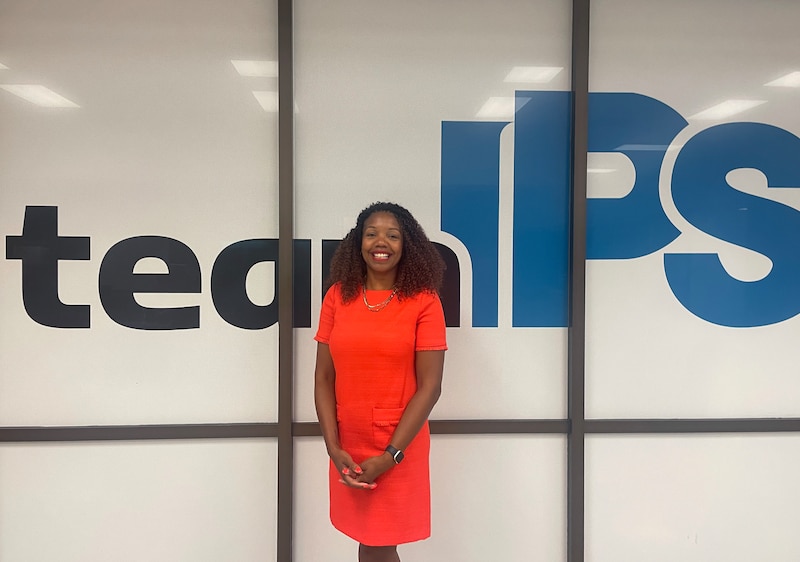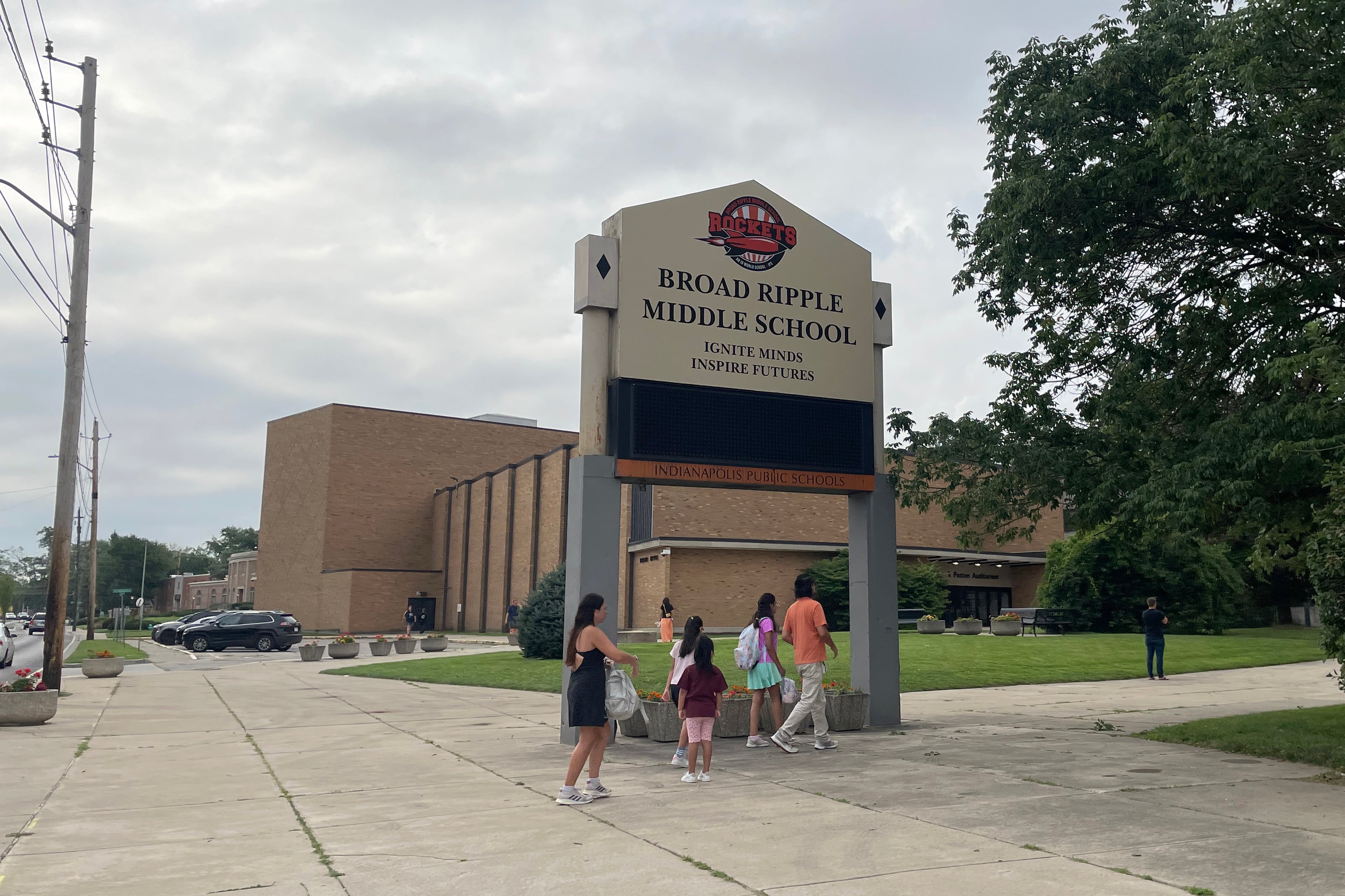Sign up for Chalkbeat Indiana’s free daily newsletter to keep up with Indianapolis Public Schools, Marion County’s township districts, and statewide education news.
The students starting at Thomas Carr Howe Middle School and Broad Ripple Middle School Thursday morning weren’t the only ones with first-day butterflies.
The day marked a huge transition for everyone at both schools, as T.C. Howe and Broad Ripple began serving grades 6-8 for the first time.
“They asked that the parents have patience,” said Francisca Abarca, whose daughter started sixth grade at Broad Ripple on the first day of classes for Indianapolis Public Schools. “Maybe for a couple weeks it’s going to be rough.”
The middle schools opened this year as part of the district’s Rebuilding Stronger plan to advance equity and expand educational opportunity, as well as access to extracurriculars. IPS leaders say that reconfiguring K-8 schools into separate elementary and middle schools ensures every middle school student can study a foreign language and Algebra I, play sports, participate in art or music, and receive college and career counseling.
“We know when our students are engaged in things like extracurricular activities, athletics, the arts, [and] clubs, that we see higher attendance, lower incidence of discipline, higher academic outcomes,” Superintendent Aleesia Johnson told Chalkbeat.
Still, many parents say they feel anxiety and frustration as the school year kicks off. Several parents told Chalkbeat they have concerns about the logistics of this phase of Rebuilding Stronger, from changes to transportation to students’ emotional responses to the transition. But they also shared excitement about the new classes and extracurricular offerings.
Cheyenne McAleese said her son was devastated when he learned he could no longer attend the Sidener Academy for High Ability Students, where he had built relationships with peers and teachers. Under Rebuilding Stronger, Sidener changed from serving grades 2-8 to grades 1-5.
“It felt like my child was being completely uprooted,” McAleese said.
The switch also affected her family’s eligibility for transportation — at their new school, T.C. Howe, they’re considered in the walking zone and therefore don’t qualify for school bus service. But work schedules don’t permit McAleese or her husband to walk with their son. And McAleese feels it’s unsafe for her 11-year-old son to walk alone on their street due to criminal activity she said she sees there.
“I don’t want my kid walking that route to and from school,” she said.
At the same time, McAleese said she was happy about the expanded extracurriculars: Her son will enjoy the new clubs and sports available to him, and she won’t have to worry about finding after-school care on those days he’s participating in them.
Other parents were also excited. Hillary Brown, who is forming a Parent Teacher Association at T.C. Howe, said her family supports Rebuilding Stronger and appreciates that more students will have access to opportunities they wouldn’t have had a year ago.
Brown said her son can’t wait to join the clubs and sports offered at his new school. Compared to where they thought he’d be attending, George W. Julian School 57, the list feels “endless.”
“Coming from a school where we really didn’t have very many extracurriculars to having choices that he never even thought about is very exciting for him,” Brown said.
Johnson said T.C. Howe and Broad Ripple coming online represents one of the bigger shifts occurring in the district this year.
“Those are essentially launching brand new schools,” Johnson said. “Everything from our routines of how we go from one classroom to the other, to any scheduling logistics that have to be smoothed out as we get kids in the building and actually see how movement happens.”

Abarca and her husband, Braulio Munoz, walked their sixth grade daughter to Broad Ripple this morning with their younger kids in tow. They said she was anxiously anticipating this day, but she relaxed when she saw familiar faces from her old school.
The family took selfies and hugged in front of the new sign for the Broad Ripple Middle School Rockets. “Ignite minds, inspire futures,” it reads.
They stayed with her all the way up to the main entrance. She gave them one last wave and a smile before heading inside.
Haley Miller is a summer reporting intern covering education in the Indianapolis area. Contact Haley at hmiller@chalkbeat.org.






